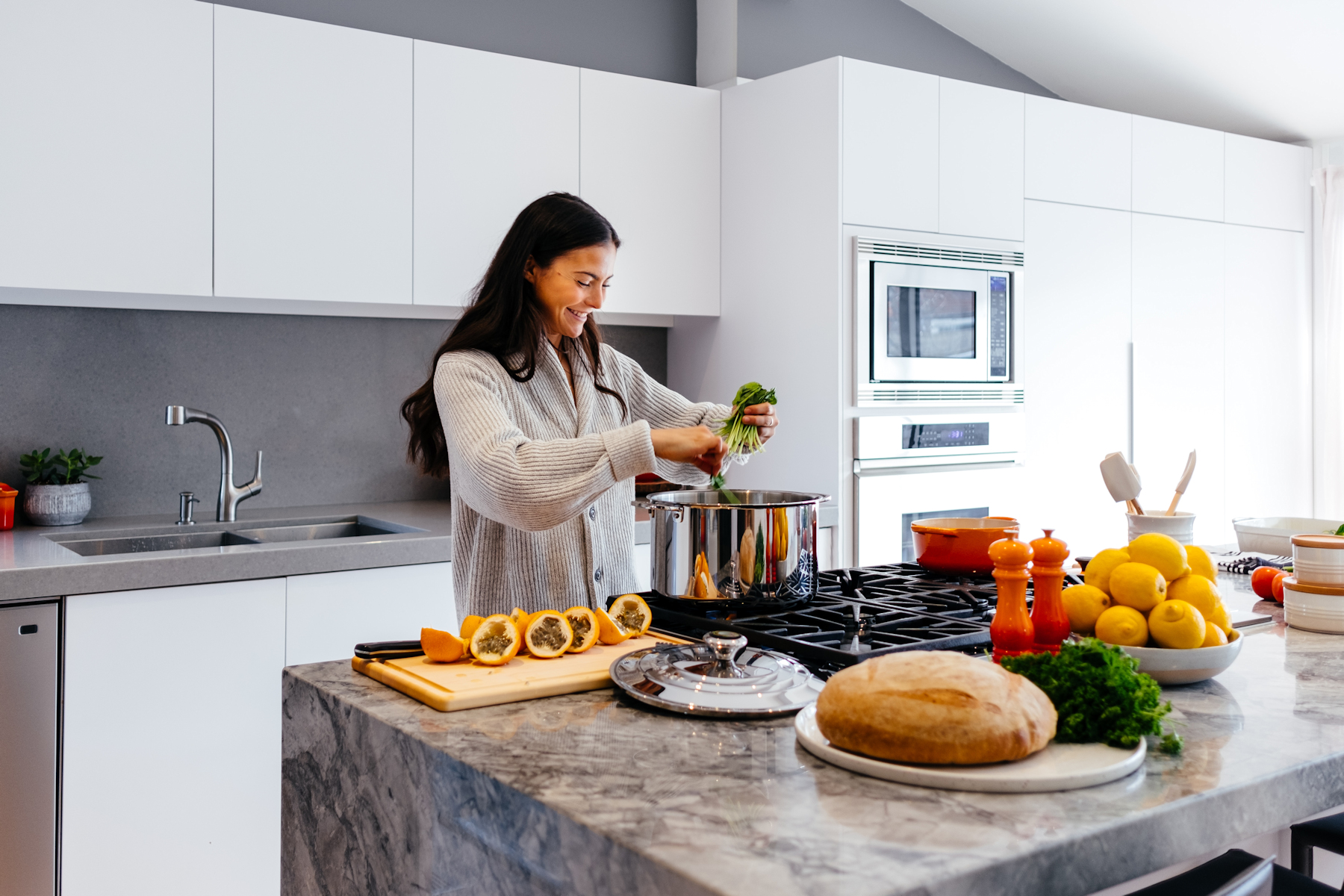Introduction:
In recent years, there has been a growing awareness of the environmental impact of food production and consumption. As consumers become more conscious of their carbon footprint and seek ways to reduce waste, the intersection of smart appliances and sustainable cooking has emerged as a promising solution. In this article, we’ll explore how smart appliances are revolutionizing the way we cook, eat, and think about sustainability in the United Kingdom. From reducing energy consumption to minimizing food waste, these innovative technologies are paving the way for a greener culinary future.
The Rise of Smart Appliances
Evolution of Kitchen Technology:
Smart appliances, equipped with advanced sensors, connectivity features, and automation capabilities, have transformed traditional kitchens into high-tech hubs of innovation and efficiency.
Benefits of Smart Appliances:
Smart appliances offer numerous benefits, including energy efficiency, precise temperature control, remote monitoring, and personalized cooking experiences, enhancing convenience and reducing workload for users.
Growing Market Adoption:
With the increasing demand for convenience and connectivity, smart appliances have gained popularity among consumers in the UK, driving market growth and innovation in the home appliance industry.
The Imperative of Sustainable Cooking
Environmental Impact of Food Production:
Food production and consumption account for a significant portion of global greenhouse gas emissions, water usage, and land degradation, highlighting the need for more sustainable cooking practices.
Minimizing Food Waste:
Food waste is a major issue, contributing to environmental pollution, resource depletion, and economic losses. Sustainable cooking aims to minimize food waste by utilizing ingredients efficiently and repurposing leftovers.
Reducing Energy Consumption:
Energy-intensive cooking methods, such as conventional ovens and stovetops, contribute to carbon emissions and energy consumption. Sustainable cooking involves using energy-efficient appliances and cooking techniques to reduce environmental impact.
Smart Appliances for Sustainable Cooking
Energy-Efficient Cooking:
Smart appliances, such as induction cooktops and convection ovens, are designed to be energy-efficient, reducing electricity consumption and operating costs compared to conventional appliances.
Precision Cooking Technology:
Smart appliances utilize precision cooking technology, such as sous vide and induction heating, to optimize cooking times, temperatures, and energy usage, resulting in more efficient and eco-friendly cooking processes.
Food Preservation and Storage:
Smart refrigerators and freezers incorporate features like temperature control, humidity sensors, and inventory tracking to extend the shelf life of perishable foods, reducing food waste and promoting sustainable consumption habits.
Innovative Features and Technologies
Recipe Suggestions and Meal Planning:
Smart appliances offer recipe suggestions, meal planning tools, and cooking tips based on user preferences, dietary restrictions, and ingredient availability, helping users make more informed and sustainable food choices.
Remote Monitoring and Control:
With remote monitoring and control capabilities, users can monitor cooking progress, adjust settings, and receive alerts on their smartphones, reducing the risk of overcooking, energy waste, and food spoilage.
Ingredient Recognition and Inventory Management:
Advanced smart appliances use image recognition and barcode scanning technology to identify ingredients, track inventory levels, and suggest recipes based on available ingredients, promoting efficient meal planning and reducing food waste.
Case Studies and Success Stories
LG ThinQ Smart Oven:
The LG ThinQ Smart Oven features AI-powered cooking technology, precise temperature control, and recipe recommendations, helping users cook meals with minimal energy consumption and waste.
Samsung Family Hub Refrigerator:
The Samsung Family Hub Refrigerator offers innovative features such as food tracking, expiration alerts, and recipe suggestions, enabling users to reduce food waste and make more sustainable food choices.
Miele Dialog Oven:
The Miele Dialog Oven uses innovative electromagnetic cooking technology to cook food evenly and efficiently, reducing cooking times and energy consumption while preserving the natural flavors and nutrients of ingredients.
Future Outlook and Challenges
Integration with Renewable Energy:
Future smart appliances may integrate with renewable energy sources, such as solar panels or wind turbines, to further reduce reliance on fossil fuels and minimize environmental impact.
Data Privacy and Security:
As smart appliances collect and analyze user data, ensuring data privacy and security will be crucial to maintain consumer trust and compliance with data protection regulations.
Affordability and Accessibility:
Making sustainable cooking technology accessible and affordable to a wider range of consumers will be essential to drive adoption and scale the impact of smart appliances on sustainability.
Conclusion: Embracing Innovation for a Sustainable Future
Smart appliances are revolutionizing the way we cook and eat, offering eco-friendly solutions to address the environmental challenges of food production and consumption. By harnessing the power of technology, manufacturers and consumers in the UK can work together to create a more sustainable culinary future. From energy-efficient cooking to intelligent food storage and meal planning, smart appliances are empowering users to make greener choices and reduce their environmental footprint. By embracing innovation and sustainability, we can create a healthier planet for future generations while enjoying delicious and nutritious meals made with the latest smart cooking technology.

